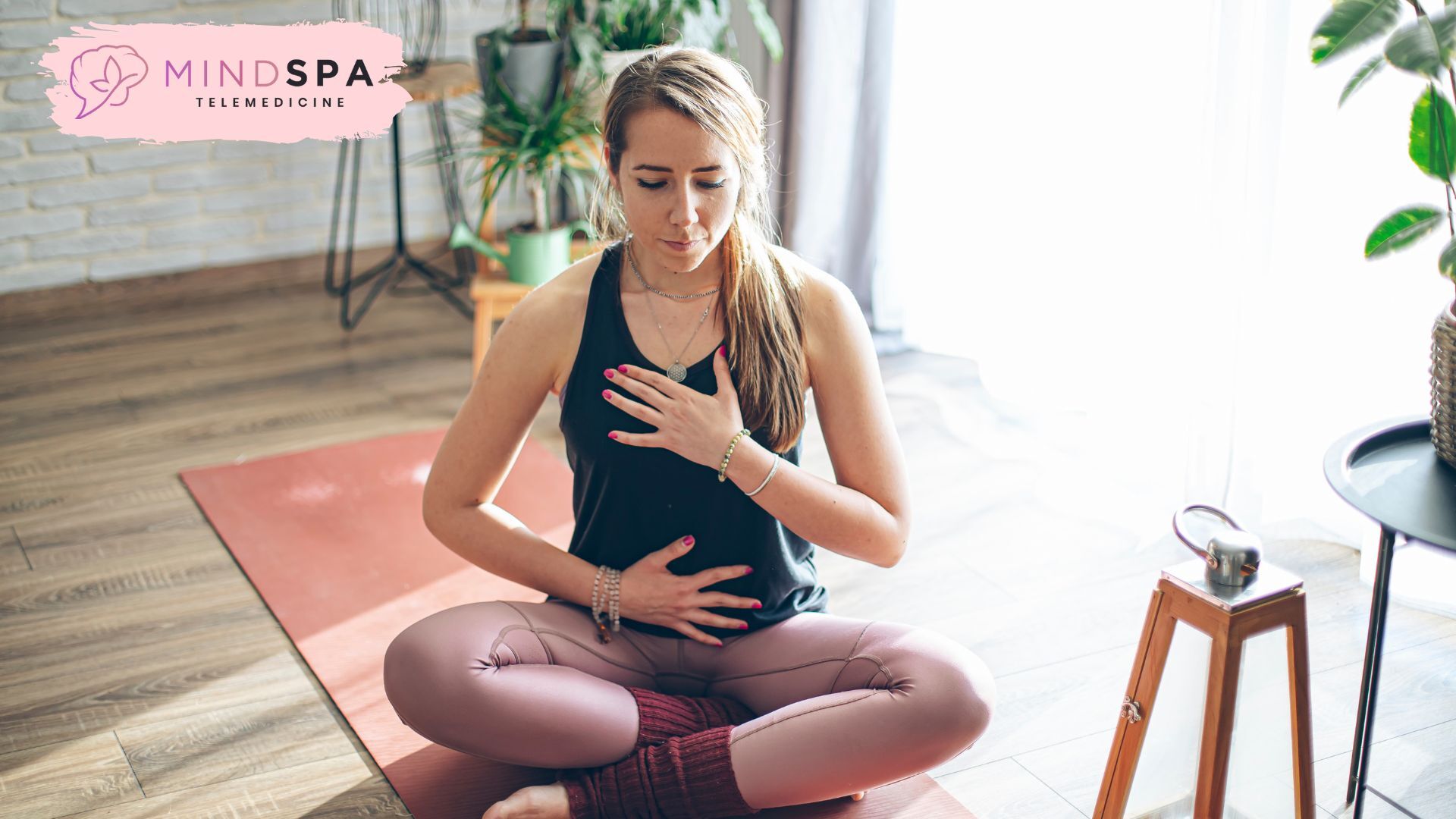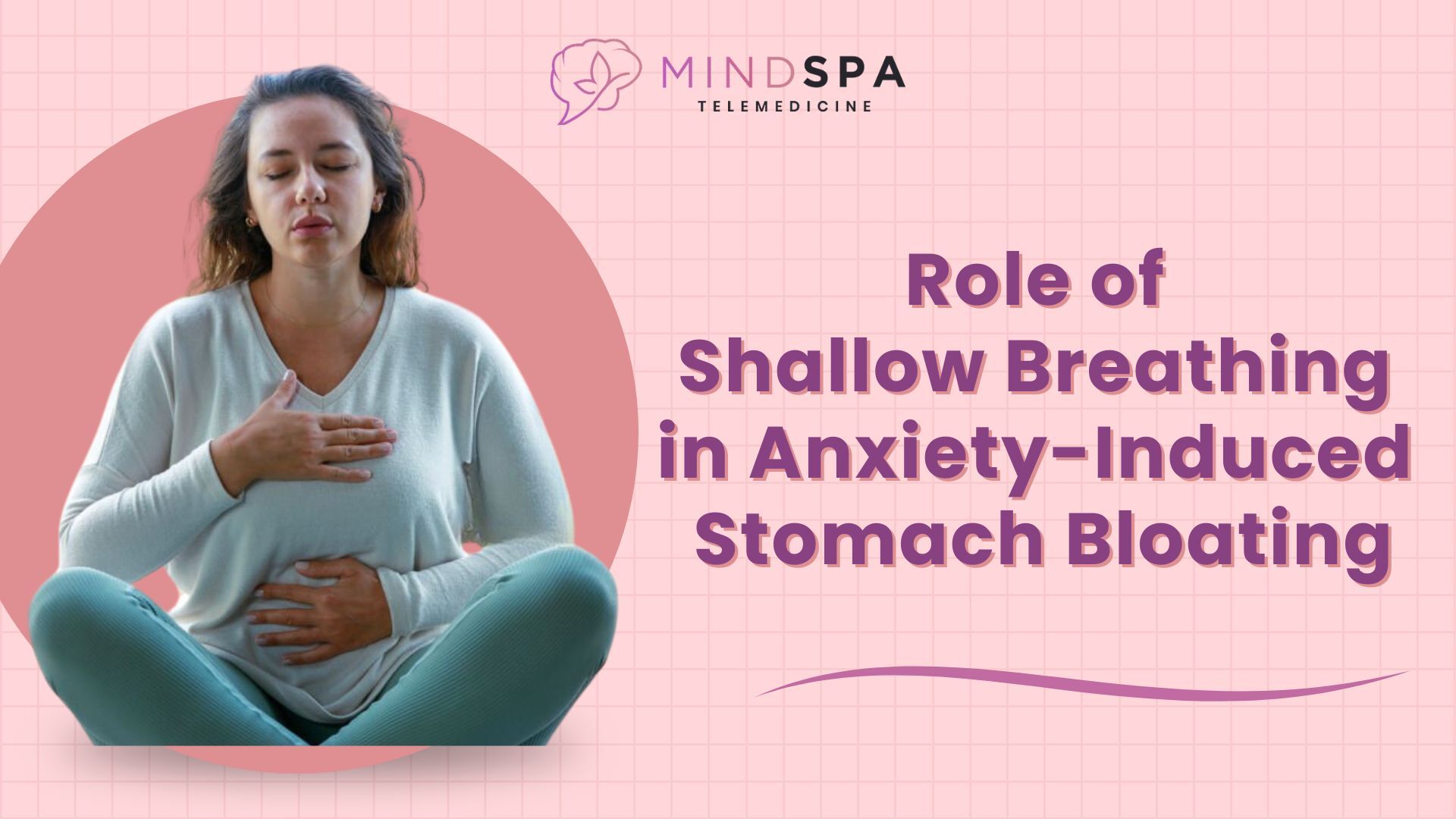If you are experiencing anxiety, chances are that some of the most basic bodily functions, such as breathing, will be impacted by it significantly. Turning a basic function into something extremely discomforting is something anxiety is known for.
To complicate things further, shallow breathing, which anxiety causes, also leads to issues like stomach bloating, a challenge very few people know about. Apart from the common issues like panic attacks and increased stress, stomach bloating is a significant issue posed by shallow breathing, and here we will explain exactly how this poses an issue and how to deal with it.
What Is Shallow Breathing?
Also known as chest breathing, shallow breathing is when a person is only able to take very short and rapid breaths that do not completely engage the person’s diaphragm. Rather than completely pulling in air inside the lungs, this kind of breathing only allows air to reach the upper chest area, leaving the lungs underutilized.
When this happens for a prolonged period, shallow breathing results in the disruption of the balance of carbon dioxide and oxygen inside the body, thereby causing several physical issues, including stomach bloating.
Shallow breathing thus disrupts the natural breathing rhythm, which has an impact on digestive health. The bloating typically occurs because the short breaths amplify the risk of swallowing excessive air, which gets collected in the stomach as well as the intestines, resulting in multiple issues including gas, bloating, and abdominal pain and discomfort. This condition of swallowing too much air is known as aerophagia.

Impact Of Shallow Breathing on Stomach Bloating
Apart from the effect of causing one to swallow excessive air, anxiety caused by shallow breathing also causes other issues that impact the digestive system, as well as cause stomach bloating. For instance, shallow breathing significantly disrupts the movement of the diaphragm.
The diaphragm plays an important role in regulating and aiding the digestive processes, which, by the disruption of the diaphragmatic movement, also gets disrupted. This, in turn, can lead to stomach bloating as well as discomfort in the entire abdominal area.
By not engaging the diaphragm, shallow breathing has excessive ill effects on the digestive tract as a whole.
Apart from disturbing the digestive tract, shallow breathing also causes an imbalance of oxygen and carbon dioxide in the body. What shallow breathing does is slow down the intake of oxygen, as well as the retention of carbon dioxide. This leads to causing the muscles in the abdominal region to tense, thereby causing the person to experience anxiety, feel discomfort in the area, as well as develop stomach bloating.
The most challenging part of this is that the shallow breathing, which has been caused by anxiety, leads to stomach bloating, which in turn becomes a source of distress and, in turn, can contribute to the worsening of anxiety. Thus creating a vicious cycle of pain, discomfort, anxiety, and shallow breathing.

Breaking Free From This Cycle
As tough as it may sound, it is essential to crack down on the cyclical pattern of discomfort by taking conscious steps. This can seem daunting to a person already experiencing anxiety, but it is vital to focus on trying the following calming practices:
Deep Breathing
One of the biggest reasons why one experiences pain and discomfort in the abdominal area, and stomach bloating is that the diaphragm is not engaged during breathing, which impacts the digestive functions. In order to remedy this, it is essential to sit or lie down and focus on your breathing. Draw deeper breaths which engage the diaphragm, thereby ensuring that you pull in more oxygen.
For this, once you have taken position (whether sitting or lying down), place one of your hands on your chest and the other on your stomach. Thereafter, breathe in deeply from your nose. Try to keep the hand on your chest steady while ensuring that the hand on your stomach moves up and down as you breathe in and out, respectively. Once you have drawn a big and deep breath, exhale out through your mouth in a steady and slow manner. Do this for a full 5 to 10 minutes.
Practice Mindfulness
Another helpful practice which you can incorporate into your daily routine is practicing mindfulness through yoga and meditation. These help regulate one’s breathing, calming the mind and reducing anxiety, which automatically minimizes the onset of anxiety-driven shallow breathing and stomach bloating. Some poses which can help significantly are the child’s pose and the cat-cow stretch.
Exercise
Incorporating physical exercise into your routine is another effective manner in which one can reduce the occurrence of anxiety and, thereby, minimize anxiety-related issues such as shallow breathing as well as stomach bloating.
Have you been struggling with anxiety and related issues like shallow breathing and stomach bloating? If so, you may need professional help. We at Mindspa can help you work out the cause of your anxiety, identify beneficial mental care exercises, and offer expertise in mental well-being to help you navigate through the complexities of your brain. Our compassionate and caring team of seasoned nurses (as a nurse-owned practice), offers you a safe space to overcome your deepest challenges effectively.
Our telemedicine services make sure that you receive the care that you need when you need it from the comfort of your home and without the need to make appointments days and weeks in advance.

Conclusion
Anxiety is a common issue that a lot of people struggle with, but only a few can navigate through. Finding qualified professionals who can help you effectively work through the challenges brought on by anxiety, which often manifests in physical forms, can be a life-changing experience. If you have not already, connect with the professionals at Mindspa Telemed, who offer tailored solutions that align with your particular needs. Remember, the most effective medicine against anxiety is gaining control over the issue through conscious practices and efforts such as mindful breathing, incorporating physical exercise, deep breathing, and, most importantly, addressing the core cause of anxiety.


